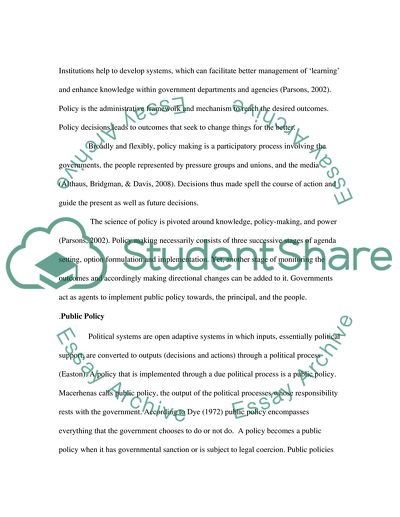Cite this document
(“Policy Analysis and Rationality Research Paper Example | Topics and Well Written Essays - 2250 words”, n.d.)
Policy Analysis and Rationality Research Paper Example | Topics and Well Written Essays - 2250 words. Retrieved from https://studentshare.org/politics/1722408-policy-analysis-and-rationality
Policy Analysis and Rationality Research Paper Example | Topics and Well Written Essays - 2250 words. Retrieved from https://studentshare.org/politics/1722408-policy-analysis-and-rationality
(Policy Analysis and Rationality Research Paper Example | Topics and Well Written Essays - 2250 Words)
Policy Analysis and Rationality Research Paper Example | Topics and Well Written Essays - 2250 Words. https://studentshare.org/politics/1722408-policy-analysis-and-rationality.
Policy Analysis and Rationality Research Paper Example | Topics and Well Written Essays - 2250 Words. https://studentshare.org/politics/1722408-policy-analysis-and-rationality.
“Policy Analysis and Rationality Research Paper Example | Topics and Well Written Essays - 2250 Words”, n.d. https://studentshare.org/politics/1722408-policy-analysis-and-rationality.


